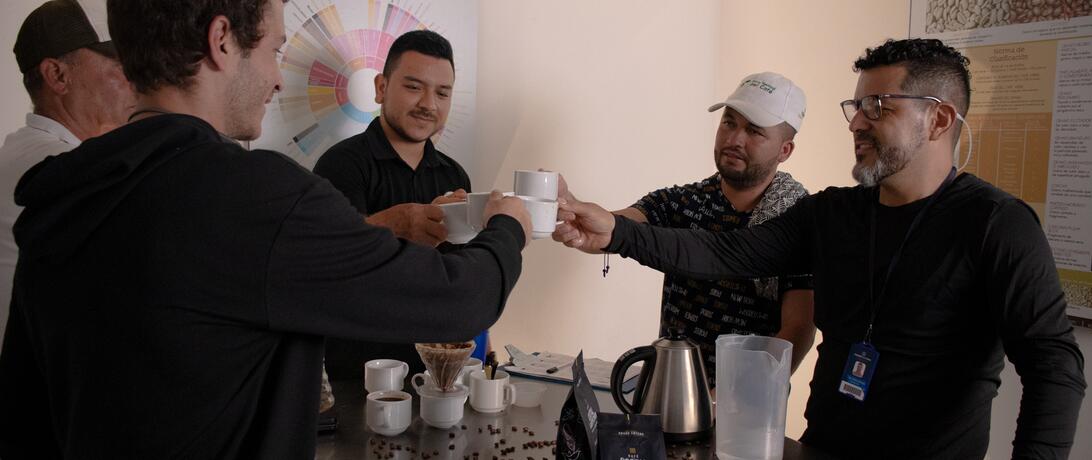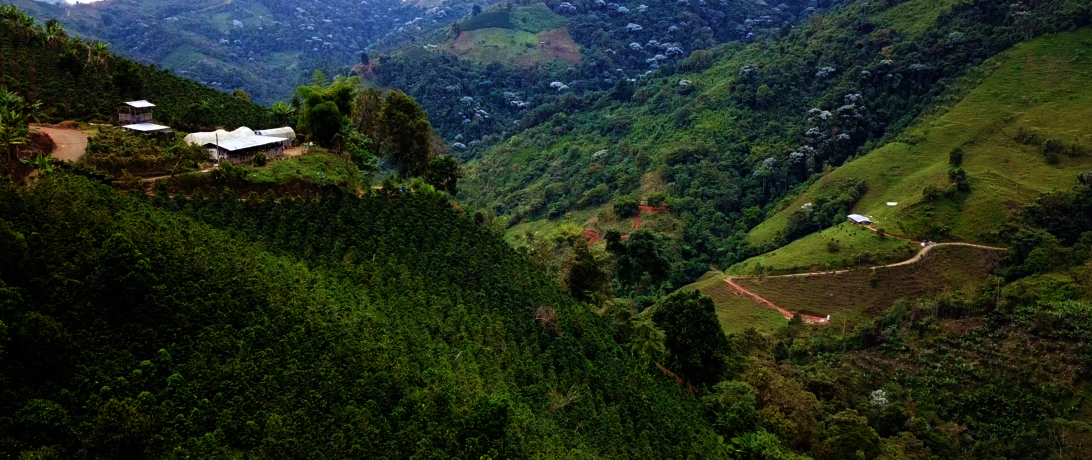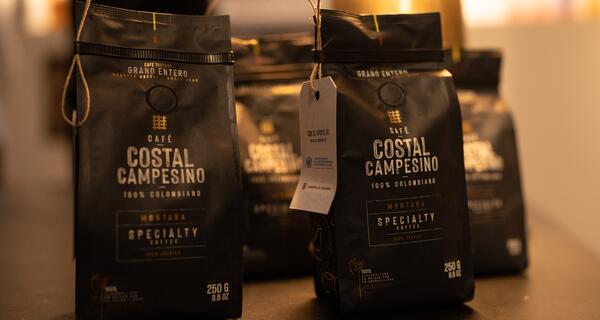Partnership Description
Since 2018, the Rural Alternative School (ERA) of Tuluá has been supporting the collaboration between 33 peace signatories and 35 coffee farming families of this community, located in the north of the Valle del Cauca. With PASO’s support, a framework agreement has been signed between the Cooperativa Multiactiva de los Comunes – COOMULNES, which brings together the majority of ERA participants, and the coffee brand Costal Campesino de Colombia. The trade agreement represents a milestone for economic and collective reincorporation in the country, as it is the first specialty coffee processed by ex-combatants and conflict-affected farmers to be exported to Europe.
This is the result of reconciliation processes that have emerged from the collective work between farmers and peace signatories and from the support of their training and productive processes. In this regard, PASO has had strategic partners that have contributed to the project since the beginning, such as the United Nations Verification Mission in Colombia, the United Nations Development Program (UNDP), and the Mayor's Office of Tuluá.
The agreement offers a solution to the problem of the low share of coffee growers in the profits of the coffee value chain. In the context of these international commercial operations, It is common for coffee to be marketed as a commodity or raw material purchased at low cost in the country of origin. Once exported, it is processed abroad, transferring much of its added value to other regions of the world. This means that Colombian coffee growers only receive 1.5% of all the added value of the product they harvest.
In an innovative twist, the agreement involves coffee farmers and ex-combatants in the generation of added value for coffee. To this end, it stipulates that Costal Campesino is a specialty coffee whose process is developed entirely at its origin. That is, the entire process is carried out locally, from the harvesting and processing of the coffee, through the purchase from the coffee grower and the roasting, to the cupping that certifies it as specialty coffee and, finally, the packaging of the whole bean. As a result, coffee growers can earn up to COP 30,000 more per 12.5kg bag than in conventional coffee markets.
PASO Colombia's role is to support COOMULNES in ensuring the technical and social traceability of this commercial logistics model. Our technical expertise and collaborative networks in this coffee-growing region is the guarantee that each bag of Costal Campesino coffee meets the standards required by the agreement, which are detailed below. Social traceability, for its part, is based on the trust relationships that COOMULNES has built with local producers over five years of collective work in the Tuluá ERA, a relationship that has led to the supply of coffee for its own "Venus" brand.
The National Coffee Growers Federation, a national federation composed of coffee enterprises of ex-combatants -and of which COOMULNES is a member- will support the agreement with coffee from other regions if necessary, while maintaining the agreed quality standards.
Moisture content: between 10.5 and 11.5.
Yield factor: < 90%
Cup profile: Clean cup - Specialty coffee with a score of 85+ by a Q Grader barista.
Traceability and custody: 100% grown, harvested, and developed at origin by conflict-affected individuals and ex-combatants.
Partnership Details
Partners: Costal Campesino de Colombia S.A.S, Cooperativa Multiactiva de los Comunes – COOMULNES.
Supported by: UN Verification Mission in Colombia, United Nations Multi-Partner Trust Fund Office for Sustaining Peace in Colombia, United Nations Development Program (UNDP), Agency for Reincorporation and Normalization (ARN), National Coffee Growers Federation, and Rural Alternative School of Tuluá - ERA of Reconciliation (PASO Colombia).
Duration: 1 year
Participants: 33 ex-combatants and 35 coffee-growing families.
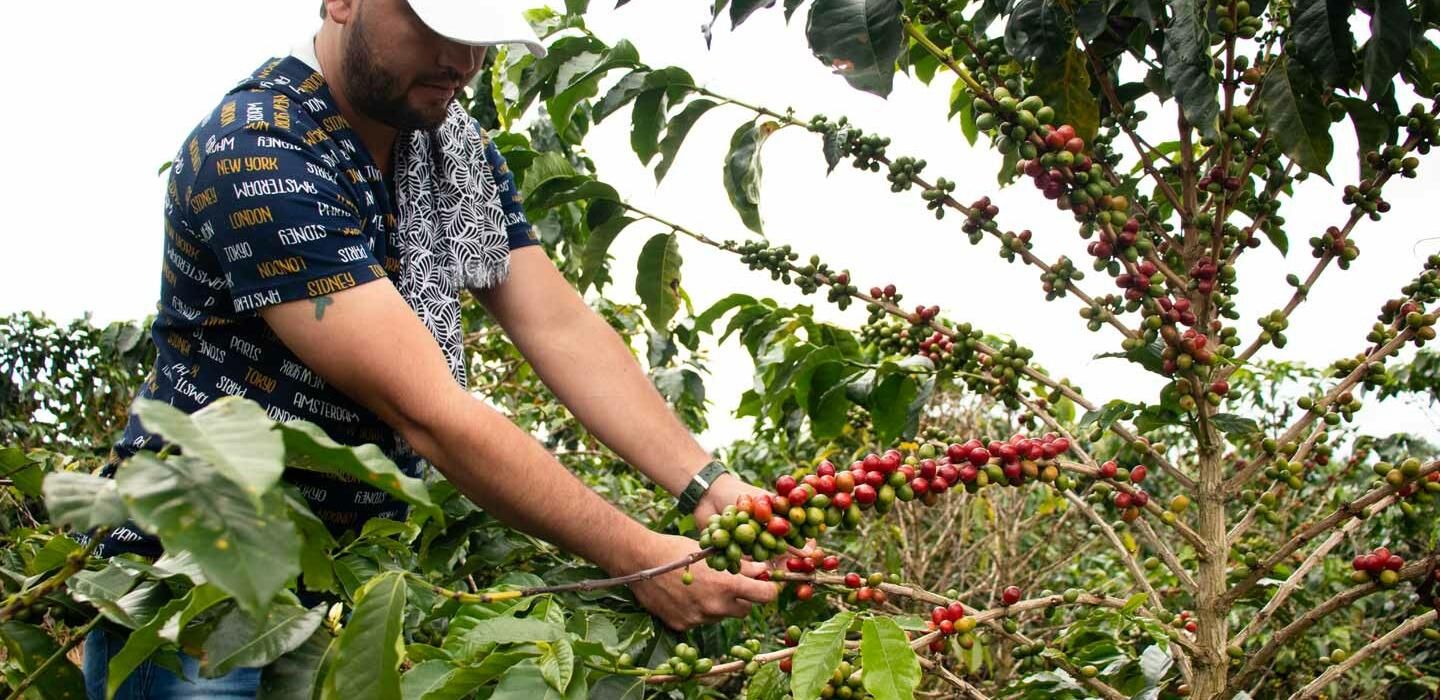
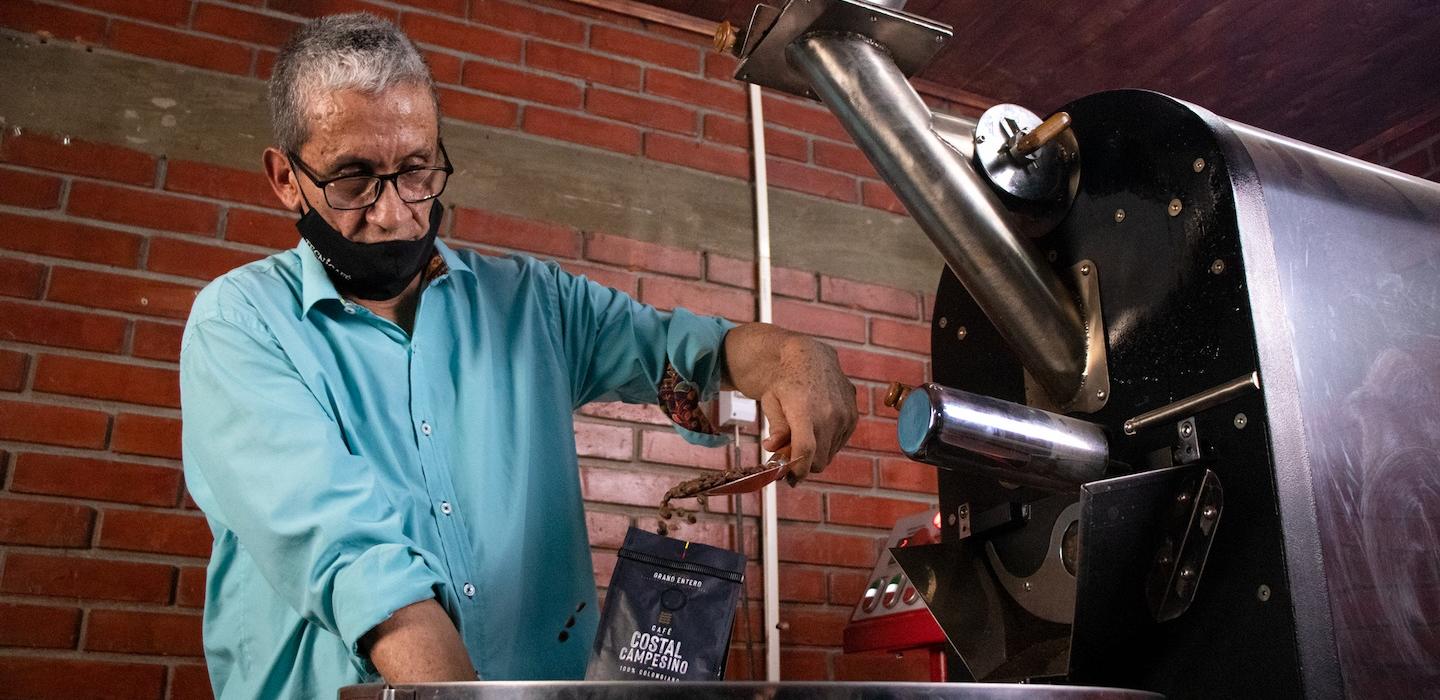
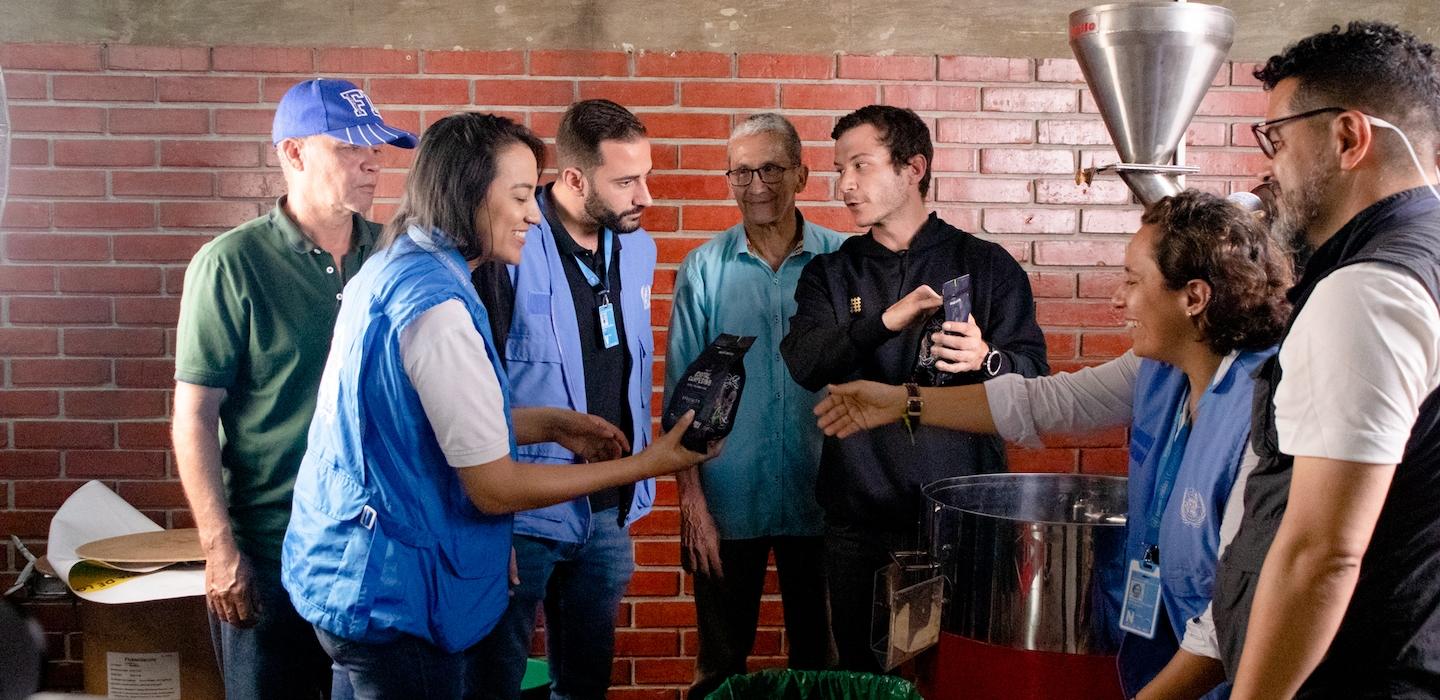
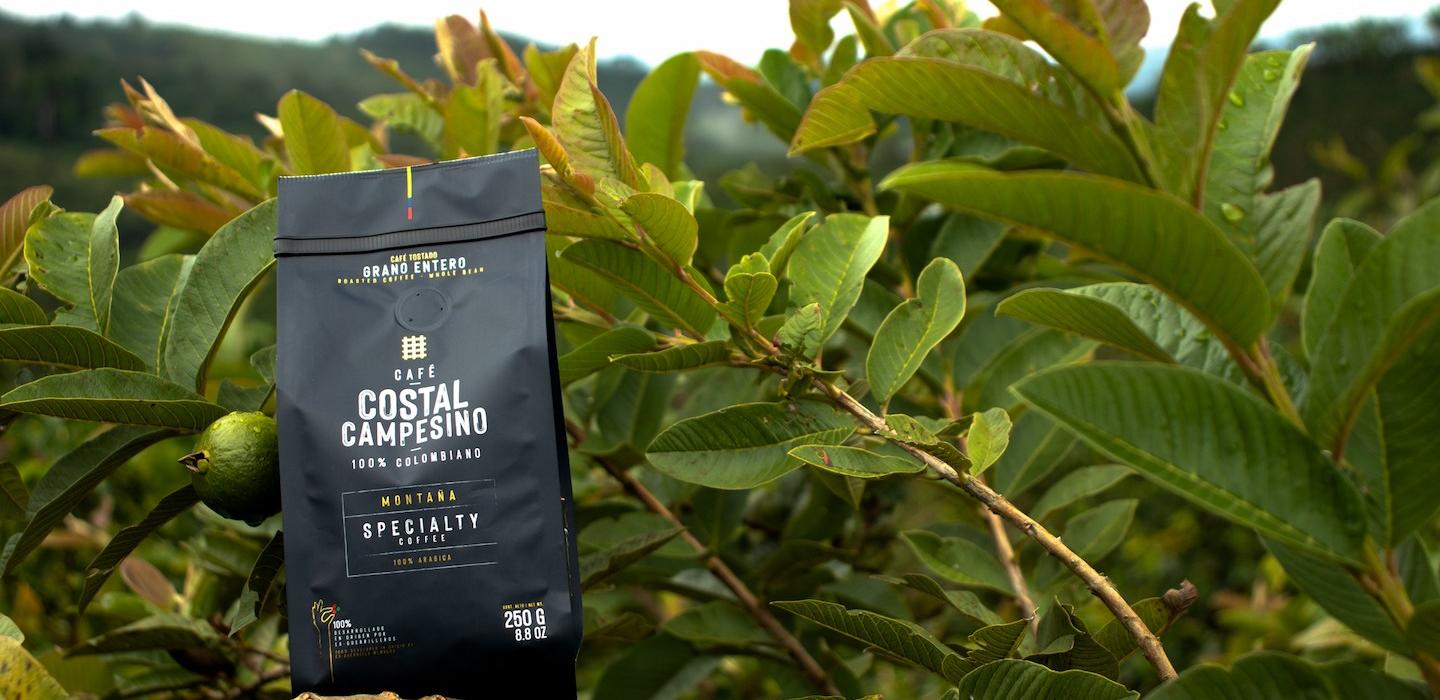
PRESS MENTIONS
We’re sorry, no results were found. Please try searching again for something else.
